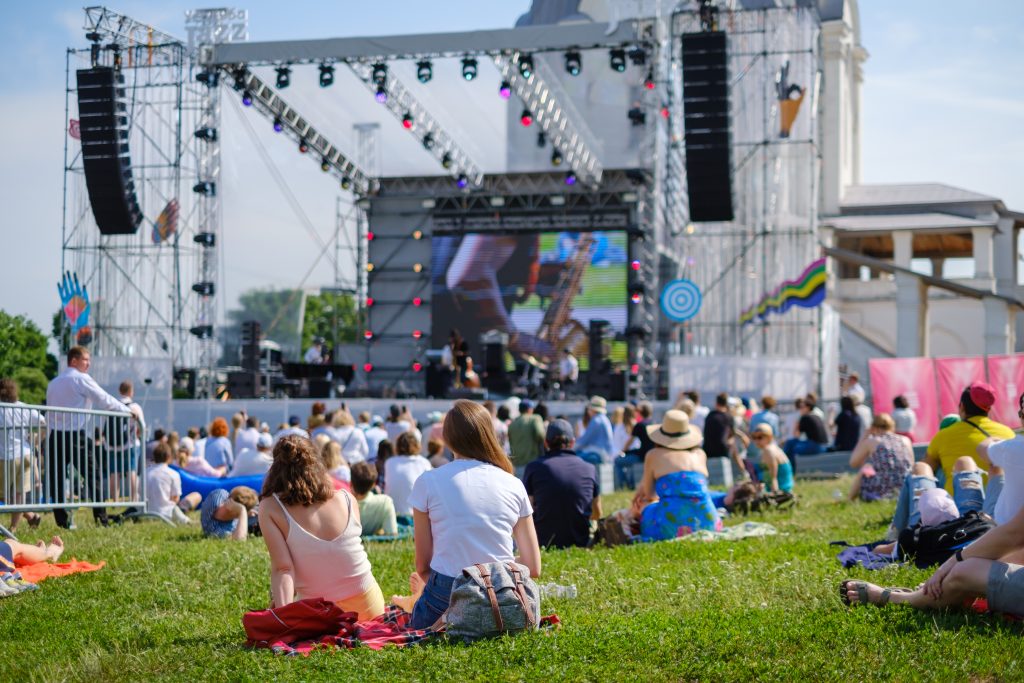A new master’s degree at Temple University’s School of Sport, Tourism and Hospitality Management will offer students the opportunity to succeed within the hospitality, tourism, events and entertainment sectors. (Adobe stock image)
Temple University’s School of Sport, Tourism and Hospitality Management (STHM) is excited to launch a new master’s program focused on creating leaders in the growing experience economy. The new Master of Science in Experience Management and Analytics (MSEMA) graduate program will prepare graduates for success within the hospitality, tourism, events and entertainment sectors with a focus on analytics and global education.
Designed to create leaders within the emerging experience economy, graduates will be primed for success within the industries of hospitality, tourism, events and entertainment through a global education in experience management and advanced analytics.
With a dynamic curriculum built on the pillars of experience strategy, data analytics, and immersive learning, students are prepared to develop an experience-focused, cross-industry mindset that will propel their career trajectories.
To learn more about the program, we checked in with Laurie Wu, an associate professor at STHM and Cassandra Ball, STHM ’16, an event, tourism and hospitality industry professional. Wu serves as academic director of the program for STHM. Ball is senior vice president of operations at Longwoods International, a leading market research consultancy within the North American travel and tourism industry.
Below, Wu (LW) and Ball (CB) offer key insights into the background and future impact of the program and its graduates in this Q&A.
What was the process of developing this program?
LW: As a school, STHM is at the forefront of the rise of the economy, driving this transformation across the sport, event, tourism and hospitality industries. Across sectors, we are seeing rapid transformations fueled by technological innovation, especially artificial intelligence (AI).
As a school, we posed the bold question: what does a graduate program focused on experiences driving value and new technologies look like – how do we meet the demands of the industry? Through the process of asking these questions, the MSEMA program was developed.
What kind of educational pillars is the program built around?
LW: The program is built around three transformative pillars: experience strategy, data analytics and immersive learning. Experience strategy centers on our students developing a critical ability to craft emotionally resonant, memorable and purpose-driven experiences for consumers. The data analytics educational piece is integral, as it will offer students education on how to utilize data and intelligent tools to optimize, personalize and craft those experiences from a data-driven perspective. Lastly, immersive learning will allow students to take part in critical experiential education experiences within the industry before graduation.
We are very fortunate to have our program based in Philadelphia, one of the biggest live event and entertainment cities in the country. These pillars will prepare students to not only become experience creators, but experience strategists who lead with empathy and intelligence to best serve their consumers.
As an industry professional within event, tourism and hospitality management, what were your thoughts when you first learned about this new graduate program?
CB: I immediately loved the concept of the program. While I’m very grateful for my master’s degree in tourism and hospitality management from STHM, I was quick to think how I would have definitely joined this program had it been offered when I was a graduate student.
To me, this program will offer students looking to break into our industry a very strong foundation and holistic perspective to the critical elements of our field. A lot of individuals enter our industry with an education rooted in either tourism or economics—it’s unique this degree offers both.

Adobe stock image
“The experience economy is the idea that businesses within the industries of events, tourism and hospitality are no longer competing for consumers on what they sell, but rather how they make people feel,” said. Laurie Wu, associate professor, STHM
Who is best suited for this program?
LW: The program is tailored for professionals and recent graduates who have a passion for people, experiences and innovation—regardless of their undergraduate major. Whether someone is from humanities, sciences, business or technology, if they have a drive to grow professionally and create better experiences through the utilization of technology and data, this program will be highly beneficial to them and their careers.
A critical element of this degree program focuses on guiding students to become leaders within the emerging experience economy. What is that?
LW: The experience economy is the idea that businesses within the industries of events, tourism and hospitality are no longer competing for consumers on what they sell, but rather how they make people feel.
Take the example of a cruise—it doesn’t just offer transportation or lodging—it creates a fully immersive, energetic environment where guests sail with events, entertainment and elements that create memories and emotional resonance that stay with guests long after they return. Today’s consumers are looking to have that memorable experience and find a connection across all our specialized industries.
With that in mind, we ask ourselves: how can we provide that to our consumers? And how can you utilize analytics and data to help you better/improve upon it to make data-driven decisions? Great experiences don’t happen by chance—they are crafted, tested and optimized using data. This program teaches students to design successful, emotionally resonant experiences with science and data to measure and improve upon them.
How do you find this program will offer students success within the experience economy?
CB: By offering its students a full-circle perspective on all elements of the experience economy, the program is going to allow them to break into the industry with a complete understanding for not only what consumers in our field are expecting today, but how to deliver it to them and how to measure those results.
A large educational element to this program is analytics—what role does analytics play within today’s event, tourism and hospitality industry?
CB: Analytics is a crucial tool we utilize within our industry. Especially for professionals like me who work for a market research consultancy, data, analytics and numerical measurement is how we make decisions, drive innovation and ensure that we are presenting our consumers with the best product. While you might not think numbers are important when it comes to our field, gaining the knowledge of how to process large amounts of data and metrics is critical. Numerical figures often help us determine what is good, what is bad or simply a baseline check on consumer feedback.
Why does Philadelphia serve as a great backdrop for this program?
LW: Our location allows students to utilize the city as a fantastic “learning lab.” Philadelphia offers a powerful mix of history, diversity, global events and innovation, which results in an ideal setting for anyone studying at the intersection of experience and analytics.
When you consider the city’s hotels, museums, sports teams and stadiums, music and performance venues, restaurants, transportation hubs, these are all prominent event, tourism and hospitality-based attractions which students can observe, analyze and examine the experience and operations of first-hand. That kind of experiential learning opportunity and perspective adds very important elements to the complete degree experience.

Adobe stock image
The new program will include a global immersion course that incorporates a trip to one of Temple’s international campuses.
The program also offers experiential learning opportunities beyond Philadelphia?
LW: Yes, we are thrilled that our program will include a global immersion course that incorporates a trip to one of Temple’s international campuses. We have designed the immersion experience to not only allow students to study, observe and examine international tourism first-hand, but also visit historic sites within the destination. At the sites, the class will meet with some of their logistical professionals to learn their best practices and how they navigate challenges. It’s going to add a truly integral real-world perspective.
In what ways do you believe this program will create innovative leaders within the industry?
CB: To me, it goes back to the foundational piece. Students in this program are gaining an advanced education in the tourism industry and analytics, and how they both intersect together. Especially in an environment where everything is changing and transforming from a technological standpoint, having a knowledge base in both is going to drive students to success within our field. This degree also gives an opportunity to someone from an entirely different industry a chance to enter, learn and apply what they’ve learned previously—which only adds more knowledge, skillsets and perspectives to make us all better.
As someone who has been fortunate to find success within this field, students graduating from this program are the type of talent we look for to help our company advance itself and the industry as a whole.
How will this degree experience differentiate students from their peers within their industry?
LW: For any professional, but especially for those within the entertainment, event, hospitality or tourism industries, our programming is designed to have a critical impact on their career trajectories.
This programming is built to teach students an integral and transferable skillset that blends strategic thinking, customer insight, data fluency and AI integration—learning these components allows for them to be uniquely effective across an array of industries. This preparation, coupled with the ability to collaborate on a creative, strategy or analytic team, will allow our graduates to stand-apart with an experienced driven, cross-industry mindset.
The MSEMA program will create graduates who think beyond roles, industries and are ready to lead wherever experiences matter.
Learn more about the program here.
